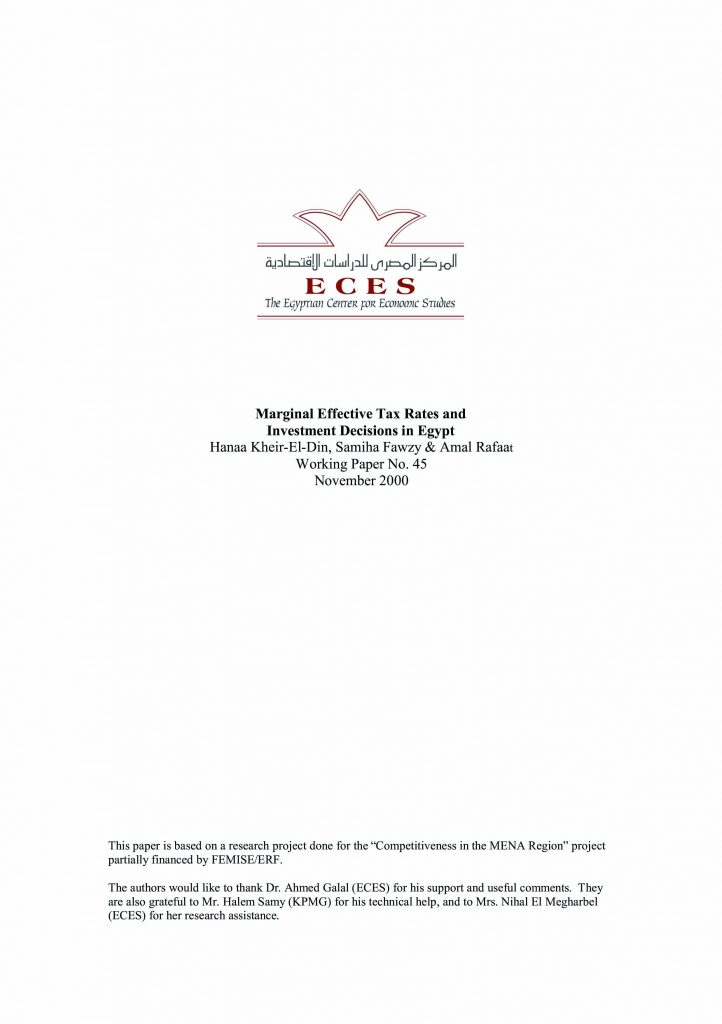Abstract:
Recognizing the bearing of taxation on the cost of capital and investment behavior, this paper attempts to measure the overall impact of business income taxation on domestic marginal investments in Egypt. The paper uses a computerized model developed by Dunn and Pellechio (1990) to measure the Marginal Effective Tax Rate (METR) on capital. The study shows that METRs in Egypt are relatively high compared with statutory income tax rates and METR levels in some Latin American countries. Furthermore, the analysis indicates that the tax system favors joint stock companies listed on the Stock Exchange over other legal forms of companies, manufacturing over services, debt over equity financing and land over other capital assets. Although export activities face lower METR compared to inward oriented ones, they are insufficient to offset other tax-induced biases against exports. The study concludes by offering broad recommendations consistent with investment promotion, efficient allocation of resources and equity. These recommendations include reducing the effective tax burden on investment, phasing out and rationalizing the biases induced by the tax regime, and finally reforming tax administration.

